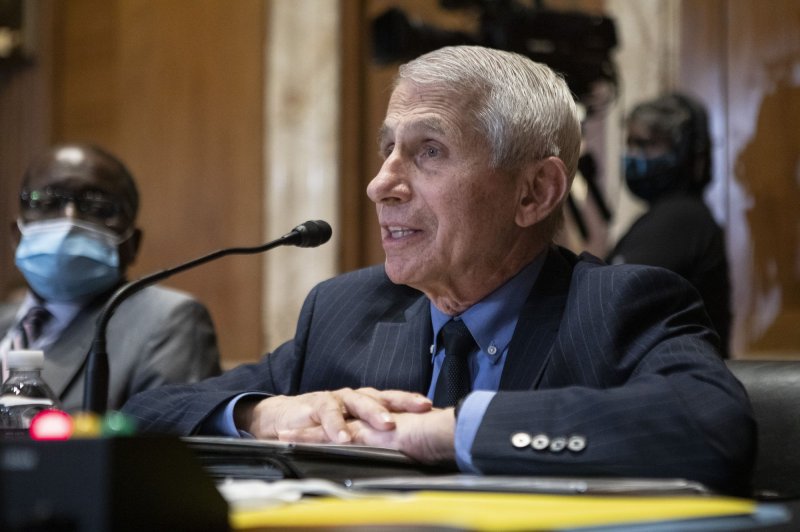
Dr. Anthony Fauci, director of the National Institute of Allergy and Infectious Diseases, has been a target of threats over measures taken to contain the COVID-19 pandemic. File Pool Photo by Anna Rose Layden/UPI | License Photo
July 29 (UPI) -- More than a quarter of Americans believe it is "justified" to harass or threaten health officials, a downturn in public opinion stemming from exhaustion with COVID-19 shutdowns catalyzed by a polarized political climate, according to a study published Friday.
More than a quarter of U.S. adults surveyed by researchers at Johns Hopkins University believe such behavior is acceptable, indicating faith in public health has plummeted, even in demographics that previously tended to heed expert advice.
Lead researcher Rachel Topazian, of the Bloomberg School of Public Health at Hopkins, said the "rise in attacks on public health officials has frustrated and perplexed the scientific community. "
"Early on, press attention focused on the culpability of President [Donald] Trump in flouting public health measures and cultivating a divisive political climate," wrote Topazian, who surveyed 1,086 participants in two waves of questionnaires in November 2020 and August 2021.
"However, we found that in July to August 2021, eight months into the Biden administration and amidst optimistic projections about vaccination and falling case rates, U.S. adults' support for harassment and threatening of public health officials had increased significantly," she wrote.
Of the respondents, 34% of Republicans were more likely to endorse the idea that harassment of health officials was justified, compared to 19% of Democrats.
"The rise in attacks on public health officials has been attributed to emboldened extremist factions within former President Trump's base," Topazian wrote. "Attacks occurred in an increasingly volatile political climate characterized by threats of violence toward politicians and punctuated with the January 2021 insurrection at the U.S. Capitol.
"Restoring public trust in public health officials will require nuanced engagement with diverse groups," she added.
In May, a West Virginia man pleaded guilty to sending emails threatening to harm Dr. Anthony Fauci, Director of the National Institute of Allergy and Infectious Diseases at the National Institutes of Health, and other federal and state health officials.
Fauci, a key figure in the U.S. response to the pandemic, was targeted by Trump and his supporters for his endorsement of lockdowns and other restrictions.
Dr. Michael Fraser, executive director of the Association of State and Territorial Health Officials, has seen some vicious attacks on medical professionals.
"Most common are disparaging and offensive social media posts; public sharing of their work and personal cellphone numbers, e-mail addresses, residential addresses; or other virtual bullying," he wrote in April in the American Journal of Public Health.
"In some cases, this harassment includes the higher-profile cases of death threats, armed protests and threats of physical violence requiring law enforcement protection," he wrote.
Fraser added that one explanation for this shift in perspective could be the overpoliticization of public health issues.
"Facing the threat of COVID-19, America's leaders could have rallied around a collective, warlike response to an emerging global pandemic, but instead some used the virus and our response to it to strengthen, not to heal, bitter partisan divides," he added. "Health officials became targets of this partisan rhetoric and the public outcry that followed."
University of Minnesota Associate Professor Sarah Gollust said the situation calls for immediate investments to address a "depleted and demoralized workforce."
"Social science research affirms that no one silver bullet will reduce the hostility of political discourse at the moment, whether about politics in general nor public health in particular," Gollust wrote in a commentary on the study in JAMA Network Open. "However, the price of inaction and hopelessness is too high."
No comments:
Post a Comment